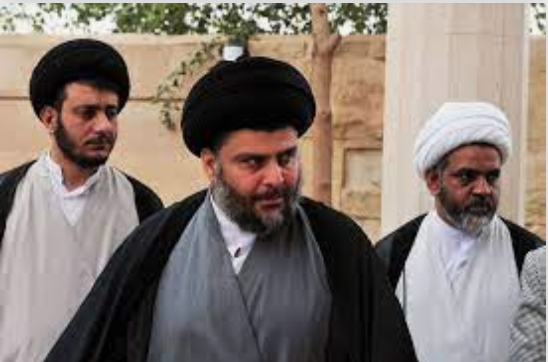 |
| (Britannica) |
On June 12, 2022 Moqtada al-Sadr shocked Iraqi politics when he had his 73 parliamentarians resign. This came just after his followers were able to get the Emergency Food Security bill passed which authorized government spending while there was no budget. That was held up as a great victory because Sadr could claim he was governing despite no new government being formed eight months after elections were held. Why then would he seemingly step away from politics? It appears that this is just another negotiating tactic and that Sadr believes that he will still be the kingmaker.
The Sadrists have been signaling that they consider themselves major players in creating the next administration. For instance, on June 19 a member of the Kurdistan Democratic Party said that the Coordination Framework, Sadr’s main rival, needed to get his approval for any new government. The next day Al Mada reported that the Sadr Trend thinks that the Framework will break apart during negotiations because it is split into different factions that may not share the same vision. There’s also the threat that the Sadrists take to the streets to bring down the next prime minister if they don’t agree with him. Sadr is gambling that his opponents will stumble and that he will be the savior or at the very least he will have the final say on the decisions of the Framework one way or the other.
Sadr has always wanted to be in the driver’s seat in Iraqi politics and he finally achieved that when he won the most seats in parliament after the last round of balloting. At the same time, he’s been frustrated in not getting his way. That might be the ultimate cause for telling his MPs to resign. He used the nuclear option to break the deadlock that’s been going on with the Coordination Framework. Whether this will pay off is yet to be seen as Sadr’s demand for a majority government is considered an existential threat to the Framework and its patronage networks, power and money it derives from controlling the state’s assets. They would lose all of those under Sadr’s plan. At the same time they know they can’t create a government without him. The differences between the two sides thus remain.
SOURCES
Hasan, Harith, “Iraq’s Political Prospects After Muqtada al-Sadr’s Parliamentary Exodus,” Emirates Policy Center, 6/15/22
Al Mada, “Current circles: Al-Sadr will not be satisfied with a government formed by the Coordination Framework,” 6/20/22
NINA, “The Kurdistan Democratic Party warns: The Coordination Framework cannot form a government without the approval of the Sadrist Movement,” 6/19/22
Reuters, “Iraqi Shia Sadrist lawmakers resign from parliament,” 6/12/22




No comments:
Post a Comment